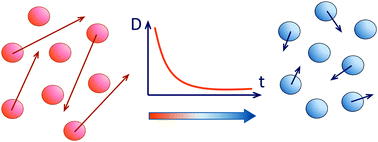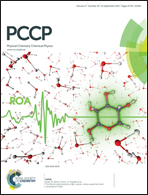Quantifying non-ergodic dynamics of force-free granular gases
Abstract
Brownian motion is ergodic in the Boltzmann–Khinchin sense that long time averages of physical observables such as the mean squared displacement provide the same information as the corresponding ensemble average, even at out-of-equilibrium conditions. This property is the fundamental prerequisite for single particle tracking and its analysis in simple liquids. We study analytically and by event-driven molecular dynamics simulations the dynamics of force-free cooling granular gases and reveal a violation of ergodicity in this Boltzmann–Khinchin sense as well as distinct ageing of the system. Such granular gases comprise materials such as dilute gases of stones, sand, various types of powders, or large molecules, and their mixtures are ubiquitous in Nature and technology, in particular in Space. We treat—depending on the physical-chemical properties of the inter-particle interaction upon their pair collisions—both a constant and a velocity-dependent (viscoelastic) restitution coefficient ε. Moreover we compare the granular gas dynamics with an effective single particle stochastic model based on an underdamped Langevin equation with time dependent diffusivity. We find that both models share the same behaviour of the ensemble mean squared displacement (MSD) and the velocity correlations in the limit of weak dissipation. Qualitatively, the reported non-ergodic behaviour is generic for granular gases with any realistic dependence of ε on the impact velocity of particles.



 Please wait while we load your content...
Please wait while we load your content...